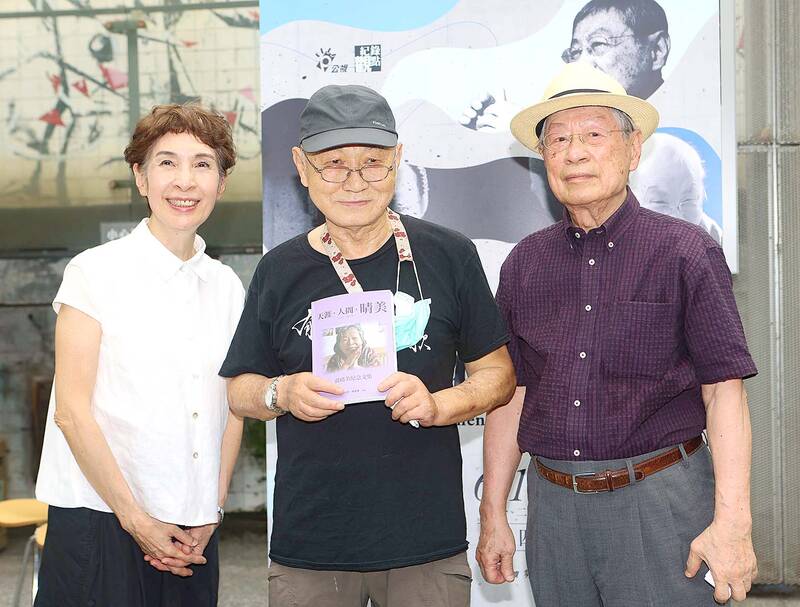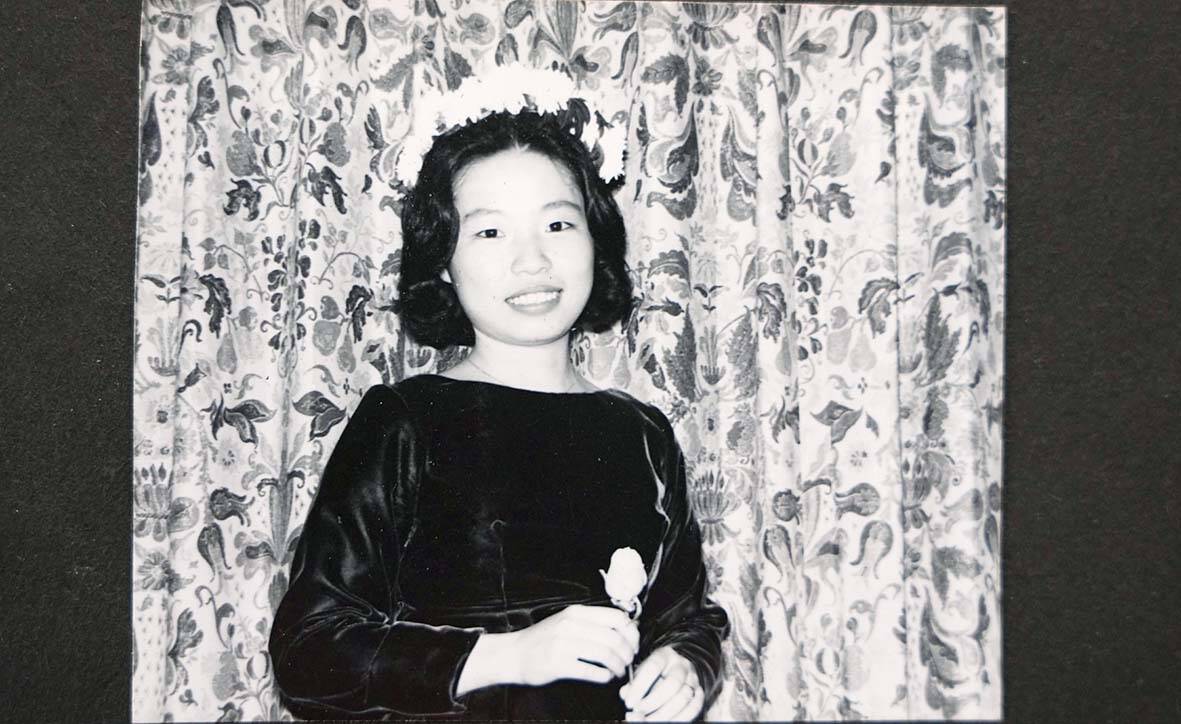Fifty-five years ago, a .25-caliber Beretta fired in the revolving door of New York’s Plaza Hotel set Taiwan on an unexpected path to democracy. As Chinese military incursions intensify today, a new documentary, When the Spring Rain Falls (春雨424), revisits that 1970 assassination attempt on then-vice premier Chiang Ching-kuo (蔣經國). Director Sylvia Feng (馮賢賢) raises the question Taiwan faces under existential threat: “How do we safeguard our fragile democracy and precious freedom?”
ASSASSINATION
After its retreat to Taiwan in 1949, the Chinese Nationalist Party (KMT) regime under Chiang Kai-shek (蔣介石) imposed a ruthless military rule, crushing democratic aspirations and kidnapping dissidents from abroad for imprisonment or execution. By 1970, this long-standing tyranny faced a geopolitical crisis as US President Richard Nixon began his strategic pivot toward the People’s Republic of China. A visit to the US by Chiang Ching-kuo, Chiang Kai-shek’s son and heir apparent, was thus part of a desperate attempt to manage this crisis.

Photo courtesy of PTS Viewpoint
Within the overseas Taiwanese community, assassination was discussed as a way to shatter the dynastic succession. Two main approaches were considered. Some favored a covert plot, while others insisted the act must be a public political statement. Among various plots, it was Peter Huang (黃文雄), his younger sister Cecilia Huang (黃晴美) and her husband Cheng Tzu-tsai (鄭自才) who chose open defiance.
On that rainy April 24, 1970, with Cecilia Huang concealing the pistol in her purse and Cheng providing cover, Peter opened fire at Chiang. The shot missed when a detective grabbed his wrist.
“Long live Formosa, long live Taiwan, down with Chiang Kai-shek,” Peter cried as he was dragged into a patrol car. The next morning, the New York Times ran the story on its front page, noting that the “suspect attends Cornell [University].”

Photo courtesy of PTS Viewpoint
DIVERGENT PATHS
The documentary unearths a compelling historical parallel. At Cornell University, Peter was a contemporary of another Taiwanese student, Lee Teng-hui (李登輝). As part of a small community of Taiwanese overseas, they often met and shared sharp criticisms of the KMT’s authoritarian rule but chose divergent paths.
The shock of the assassination attempt is widely credited with pushing Chiang Ching-kuo to accelerate his “Taiwanization” policy, which involved promoting Taiwanese elites into government to ease dissent. One of the main beneficiaries of this policy was Lee, who would eventually succeed Chiang as president and initiate Taiwan’s “silent revolution,” dismantling the authoritarian state from within.

Photo courtesy of PTS Viewpoint
When Lee won the first direct presidential election in 1996, Peter returned to Taiwan after more than two decades of exile. The two Cornell peers were once again on the same island, continuing their fight in their own unique ways.
A NEW VISION
Upon his return, Peter Huang was invited to lead the Taiwan Association for Human Rights (TAHR), the nation’s most prominent human rights organization. There, he championed a new vision: to found the nation on human rights. He argued that rather than being trapped in a diplomatic battle with Beijing over the “One China Policy,” Taiwan could redefine itself as a modern state fully aligned with the international human rights system, empowering its NGOs to engage in “human rights diplomacy.”
I witnessed this vision take shape firsthand. With funding he secured from the UK’s Westminster Foundation for Democracy, Huang established a Law and Human Rights Internship program in 1999. As one of the first two legal interns he mentored, I became part of his project to build a new generation of activists equipped with an international perspective.
The profound wisdom of this approach became evident after 2000. As Lee’s political influence waned, Huang’s only grew. He first advised president Chen Shui-bian (陳水扁) of the Democratic Progressive Party (DPP) to make human rights a cornerstone of national policy. Then, in a testament to the vision’s power, the strategy was continued by Chen’s successor, president Ma Ying-jeou (馬英九) of the rival KMT.
This rare bipartisan consensus led to landmark legislation in 2009. Taiwan formally codified the major UN human rights covenants into domestic law, establishing a permanent international review mechanism that has institutionalized Taiwan’s connection to the global human rights system.
THE FIGHTING SPIRIT
Director Feng says the film’s title, When the Spring Rain Falls, was inspired by T.S. Eliot’s The Waste Land. Just as spring represents a cruel struggle between death and rebirth, the film revisits not just a historical assassination, but the subsequent rebirth of its protagonists’ fighting spirit. To understand their full journeys, especially Cecilia Huang’s often-overlooked role and Cheng’s contributions, one must see the film.
The three protagonists were not underdogs, but the embodiment of the Taiwanese elite’s American dream. When their homeland came under existential threat, they made the extraordinary decision to risk everything in an act of open defiance. Their action was a paradigm of the Taiwanese spirit, proving that in a moment of crisis, its people are unafraid to make the ultimate sacrifice to confront tyranny.
How can a fragile democracy be safeguarded? The film finds the answer in the lives of its protagonists. Their lifelong commitment precisely captures the core of Taiwanese fighting spirit. Their resilience reveals a deeper moral strength, proving what makes a country worth defending. In an era when authoritarian powers increasingly threaten democratic values worldwide, Taiwan’s resilience demonstrates its crucial role on freedom’s front line.
The documentary is available at: shorturl.at/fjVrQ.
Hsiao I-min is a senior human rights activist and Deputy Executive Manager for the Association for Victims Support.

As Taiwan’s second most populous city, Taichung looms large in the electoral map. Taiwanese political commentators describe it — along with neighboring Changhua County — as Taiwan’s “swing states” (搖擺州), which is a curious direct borrowing from American election terminology. In the early post-Martial Law era, Taichung was referred to as a “desert of democracy” because while the Democratic Progressive Party (DPP) was winning elections in the north and south, Taichung remained staunchly loyal to the Chinese Nationalist Party (KMT). That changed over time, but in both Changhua and Taichung, the DPP still suffers from a “one-term curse,” with the

William Liu (劉家君) moved to Kaohsiung from Nantou to live with his boyfriend Reg Hong (洪嘉佑). “In Nantou, people do not support gay rights at all and never even talk about it. Living here made me optimistic and made me realize how much I can express myself,” Liu tells the Taipei Times. Hong and his friend Cony Hsieh (謝昀希) are both active in several LGBT groups and organizations in Kaohsiung. They were among the people behind the city’s 16th Pride event in November last year, which gathered over 35,000 people. Along with others, they clearly see Kaohsiung as the nexus of LGBT rights.

Jan. 26 to Feb. 1 Nearly 90 years after it was last recorded, the Basay language was taught in a classroom for the first time in September last year. Over the following three months, students learned its sounds along with the customs and folktales of the Ketagalan people, who once spoke it across northern Taiwan. Although each Ketagalan settlement had its own language, Basay functioned as a common trade language. By the late 19th century, it had largely fallen out of daily use as speakers shifted to Hoklo (commonly known as Taiwanese), surviving only in fragments remembered by the elderly. In

Dissident artist Ai Weiwei’s (艾未未) famous return to the People’s Republic of China (PRC) has been overshadowed by the astonishing news of the latest arrests of senior military figures for “corruption,” but it is an interesting piece of news in its own right, though more for what Ai does not understand than for what he does. Ai simply lacks the reflective understanding that the loneliness and isolation he imagines are “European” are simply the joys of life as an expat. That goes both ways: “I love Taiwan!” say many still wet-behind-the-ears expats here, not realizing what they love is being an